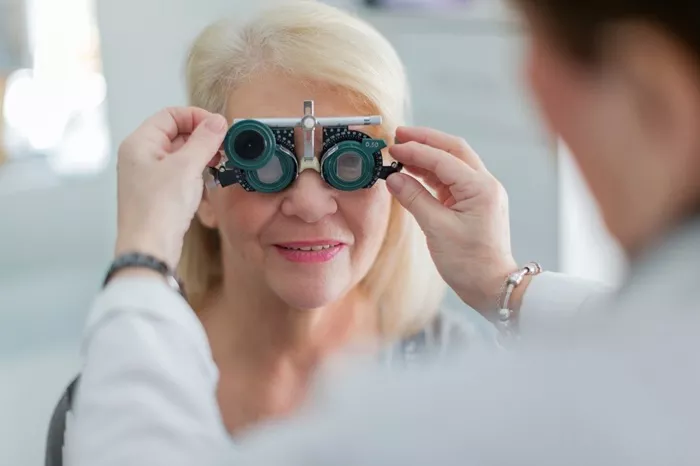Health scientists at the University of Virginia have identified a previously unknown factor in the growth of abnormal blood vessels in the eye, offering hope for those suffering from several serious eye conditions. The discovery highlights a key protein responsible for regulating vascular endothelial growth factor-A (VEGF), which plays a major role in blood vessel overgrowth associated with diseases like neovascular age-related macular degeneration (AMD), proliferative diabetic retinopathy, and ischemic retinal vein occlusion.
The breakthrough, led by UVA’s Dr. Jayakrishna Ambati and Shao-bin Wang, offers new insights into how excessive VEGF levels can lead to harmful blood vessel formations under the retina. The team’s experiments in lab mice demonstrated that blocking this protein resulted in a targeted reduction of VEGF without causing harm to the retina, providing a promising lead for future treatments.
Significance of the Discovery
Currently, treatments aimed at controlling VEGF to prevent excessive blood vessel growth have proven effective but often lose their potency over time, making the need for more sustainable therapies critical. The new research offers an in-depth understanding of the role ocular immune cells, particularly macrophages, play in this process—a question the team has been investigating for over 20 years. This discovery may pave the way for therapies that offer long-term solutions to prevent vision loss, especially for individuals at risk of these eye conditions.
With over 200 million people affected by neurovascular AMD globally, the potential to reduce this number is a crucial step forward. While the road from discovery to treatment will require further research and time, the findings provide hope for improved management of eye health and the prevention of vision impairment.
Protecting Your Eye Health: Tips for Long-Term Vision Care
While breakthrough treatments are still in development, there are simple steps individuals can take to protect their eye health today.
Wear Sunglasses Outdoors
Prolonged exposure to ultraviolet (UV) rays can lead to severe eye damage, increasing the risk of conditions like macular degeneration and cataracts. Protect your eyes by wearing sunglasses with 100% UVA and UVB protection, regardless of the weather. For those who need corrective lenses, clip-on sunglasses provide an affordable solution without compromising on vision.
Quit Smoking
Smoking is a well-known contributor to numerous health problems, including those affecting the eyes. Smokers are more likely to develop cataracts and age-related macular degeneration, with an increased risk of vision loss. Quitting smoking significantly lowers these risks and helps maintain healthy blood flow to the eyes, ensuring they receive adequate nutrients.
Stay Hydrated
Adequate hydration is crucial for eye health. Proper fluid intake ensures that the eyes remain lubricated, preventing dryness, irritation, and discomfort. Aim to drink at least eight glasses of water a day, and consider using artificial tears if dryness becomes an issue. Products like Bausch + Lomb’s Meibo eye drops help address symptoms of dry eye disease by targeting tear evaporation.
By adopting these preventive measures and staying informed about emerging treatments, individuals can better safeguard their vision and maintain healthy eyes for the long term.
Related topic:
RAAHI Programme Hits 1 Million Eye Screenings Milestone
Bausch + Lomb Acquires Whitecap Biosciences to Boost Ophthalmic Pipeline
Katie Price Plans More Surgeries, Including Eye and Breast Procedures

